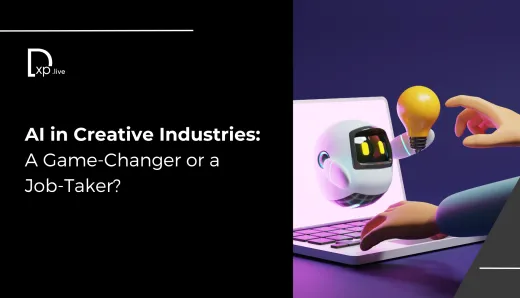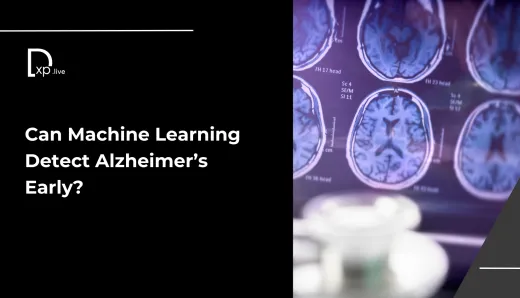Gen AI's Talent Transformation: The Skills Shift You Can't Ignore

The age of generative AI (Gen AI) is upon us, and with it comes a profound shift in how organizations need to think about talent. The days of defining employees by rigid roles are quickly fading. Instead, successful companies are now focusing on developing flexible skill sets that align with rapidly changing technology landscapes. For top-decision makers, especially those navigating the uncertain talent pool, embracing this shift is not only a strategic necessity—it’s a competitive advantage.
Why Skills Matter More Than Roles
In today’s volatile talent environment, it’s become evident that companies can no longer afford to think in terms of fixed roles.
- McKinsey points out that close to 70% of leading economic performers set themselves apart by creating proprietary software, with a striking one-third turning it into a direct revenue stream. This data highlights a growing trend: to stay ahead, companies must develop the software capabilities that align with their strategic goals.
The rise of Gen AI offers a promising avenue for enhancing these capabilities. While some companies are still grappling with how best to implement AI in their workflows, early adopters have already seen impressive results.
- Now, McKinsey’s survey reports that product managers (PMs) using Gen AI have achieved up to 40% improvements in productivity, with coding times halved in certain cases. The potential here is undeniable, but as I see it, organizations still need to focus more on equipping their workforce with the right skills to truly harness the power of Gen AI.
The Changing Nature of Software Development
Incorporating Gen AI into the product development lifecycle (PDLC) is transforming how software teams operate. Gone are the days when coding was a solitary task. Today, engineers are expected to shift from doing to reviewing, ensuring that AI-generated code is compatible with existing systems and meets high-quality standards.
To quote what Mckinsey said, "Gen AI can assist with 10-20% of coding tasks today, and this number will grow as technology matures." But the key here isn’t just technological adoption—it’s preparing engineers to excel in this new environment.
How?
- Reviewing AI-generated code: Engineers must develop forensic skills to spot and address errors.
- Integrating multiple AI systems: Teams will need to combine Gen AI with applied AI use cases for better problem-solving.
- Upskilling for higher-value tasks: With AI handling basic coding, engineers should focus on upstream tasks like writing user stories and anticipating business outcomes.
This shift underscores the need for organizations to move beyond thinking about individual roles. Instead, they must focus on equipping their teams with a versatile skill set, ensuring that their workforce can adapt to rapidly changing technologies.
Product Managers and Gen AI: A New Frontier
Product managers (PMs) are also experiencing significant shifts in their roles due to Gen AI. As AI takes the reins in creating prototypes and writing code, product managers must sharpen their expertise with low-code and no-code tools to stay ahead. McKinsey accentuates that product managers must grasp “agentic frameworks,” where large language models (LLMs) collaborate seamlessly to complete tasks.
But the real challenge for PMs isn’t just learning new tools—it’s about building trust. Many executives are wary of relying too much on AI, fearing it may lead to errors or oversights. As leaders in product development, PMs must navigate this delicate balance between trust and risk. They must develop empathy skills to understand why teams might resist AI adoption and work with risk experts to incorporate safeguards into the PDLC.
Leadership’s Role in Talent Management Transformation
- For any company seeking to leverage Gen AI effectively, the leadership team plays a critical role.
- The leadership must set clear standards for how AI tools, models, and processes are integrated into the business.
- This means creating standardized capabilities across the company, ensuring that teams are using AI in a consistent, scalable manner.
- This is not just about implementing the right tools. Leadership also needs to focus on risk management.
- AI introduces new types of risks, from data privacy concerns to technical vulnerabilities.
- Leaders must ensure their teams are not only aware of these risks but also equipped with the skills to mitigate them.
- Companies should invest in tools that test AI-generated code against predefined policies, ensuring compliance and safety.
Preparing for the Future: Skills Over Roles
At the heart of this transformation is a shift in how companies manage talent. Traditional HR systems, with their rigid focus on roles, are ill-suited to the fast-moving world of Gen AI. Instead, organizations need to adopt a more flexible, skills-based approach to workforce planning.
Companies should:
- Develop an inventory of skills: This allows organizations to assess what capabilities they have and where the gaps lie.
- Treat skills as data: By tagging skills with expertise levels, companies can use AI to map out relationships between skills, enabling more effective workforce planning.
- Invest in upskilling: As new AI tools emerge, companies must continuously train their employees, ensuring they stay ahead of the curve.
A standout approach is the apprenticeship model. By pairing junior employees with senior experts, companies can provide hands-on learning, demystifying AI and allowing teams to see how the technology works in real-world scenarios.
McKinsey: "Effective apprenticeship programs require more than just lip service—companies must encourage participation and make it a core part of their talent development strategy."
A Strategic Imperative
In this period of uncertainty, one thing is clear: companies that invest in building flexible, adaptable talent will emerge as winners in the Gen AI era. Business leaders need to shift their mindset from roles to skills, ensuring their teams are equipped to navigate the ever-changing landscape of AI-driven software development. The Gen AI revolution is here, and while the technology itself will evolve, the need for a dynamic, skill-focused workforce will remain constant.
It is safe to say that businesses that focus on cultivating a talent strategy centered on skills—not just roles—will not only drive innovation but also enhance their customer experience. As we’ve seen with early adopters, the rewards of getting this right can be significant: improved productivity, better software, and a stronger competitive edge.
Embracing the Gen AI skills shift isn’t just a necessity—it’s an opportunity to transform how we think about talent in the digital age. The companies that adapt quickly will be the ones leading the way in the years to come.
Join the conversation! Stay ahead with our latest opinions and tech news.




